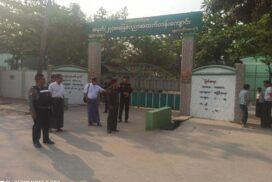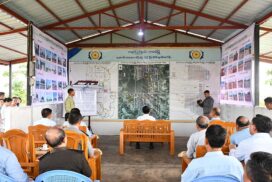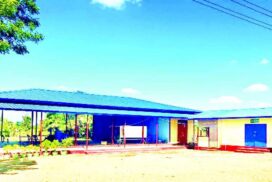Buddhist monks have been gratifying Myanmar citizens since the monarchical era by teaching Myanmar children with knowledge and religious culture as its obligations.
Mostly, Buddhist monasteries in rural areas have been reliable for rural children because of creating learning opportunities for them. These monasteries gave shelter as well as education to the local children in addition to strict guardianship for nurturing those children.
Thanks to the monasteries, monastic education students grasp the learning opportunities to become educated, outstanding and polite persons with knowledge to adore Myanmar traditions. In fact, most of the top leaders of Myanmar started their learning at monastic education schools.
Buddhist monks did not focus on the benefit from teaching but placed emphasis on teaching their pupils as part of repaying gratitude to the laypersons who donated alms and prerequisites for flourishing the Theravada Buddhism.
As monastic education schools are beneficial to the people, authorities need to emphasize raising the role of such an institution to ensure long-lasting teaching for needy children. Surely, monastic education schools would still be reliable for needy children from rural and urban areas in the future.
In general, the urban schools were out of reach of the needy people, but monastic education schools were reachable for them in the past. Although the monastic education schools have been facing the way of the mundane world with the appearance and reappearance of their role, they never give up on the obligations.
In the history of Myanmar, the Buddhist monks who led the monastic education schools tried hard to polish the children to become the outstanding generations to be able to steer the world. In fact, anyone did not identify the monastic education schools as one of the pillars contributing much to the government’s educational institutions.
Rural children have a greater chance than the students of basic education schools in learning religious knowledge in addition to school education. Indeed, religious advice is a tool to nurture those students for observing the religious knowledge and traditional culture of Myanmar, especially to follow public ethics.
As monastic education schools are beneficial to the people, authorities need to emphasize raising the role of such an institution to ensure long-lasting teaching for needy children. Surely, monastic education schools would still be reliable for needy children from rural and urban areas in the future.













